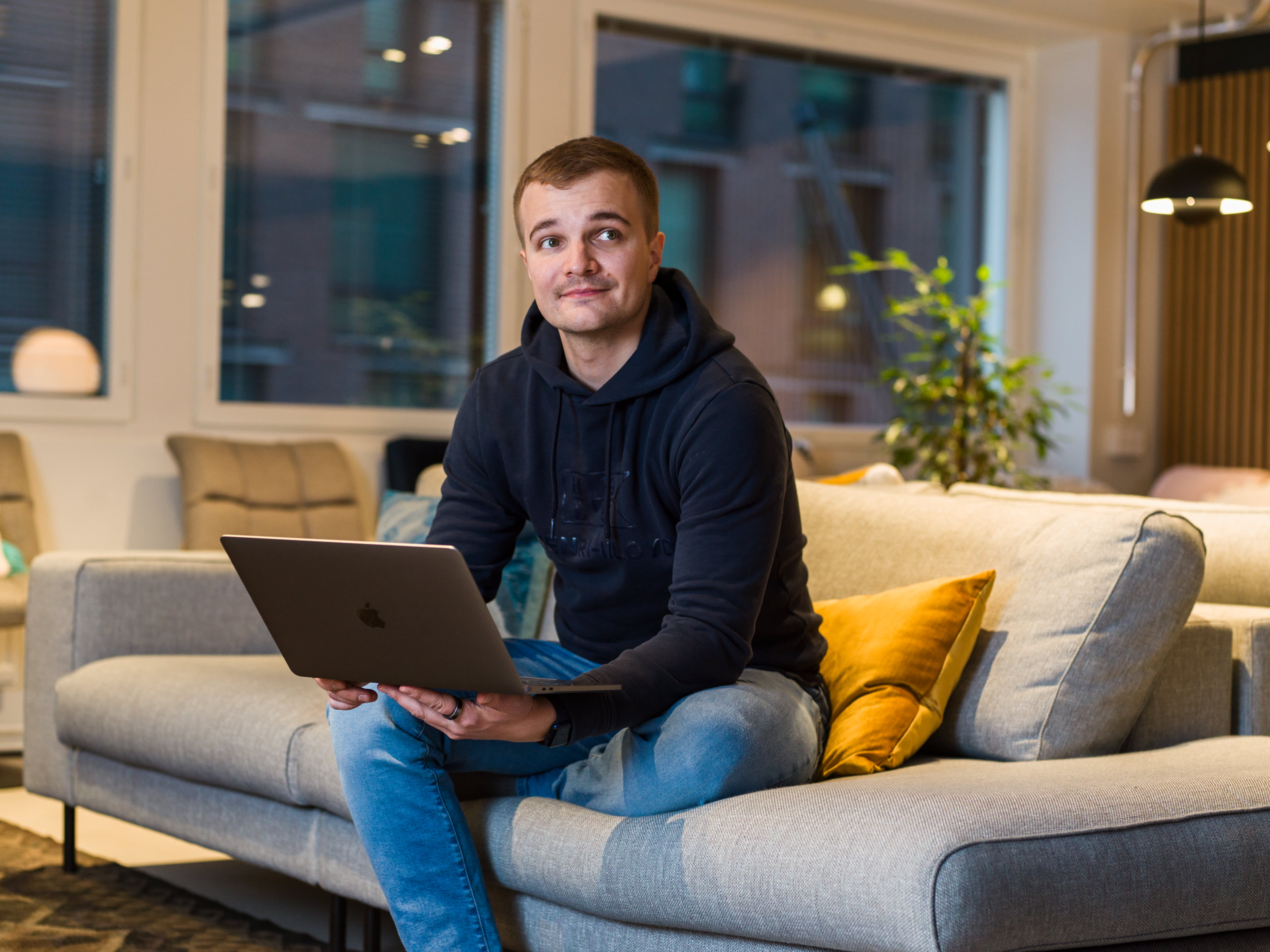Investors flock to European e-commerce start-ups hoping to take on Amazon

Miki Kuusi, CEO and co-founder of Wolt.
Wolt
LONDON – Venture capital firms and private equity investors are going wild for European e-commerce start-ups hoping to take on Amazon.
So far this year, two potential Amazon rivals have announced substantial funding rounds well into the hundreds of millions of dollars.
German start-up Gorillas said on Thursday that it had raised $290 million at a valuation in excess of $1 billion, while Finland’s Wolt announced in January that it had raised a $530 million funding round at an undisclosed valuation. Total investment in Wolt now stands at over $856 million, however.
Although Gorillas is initially focusing on groceries and Wolt is focusing on takeaways, both have plans to significantly broaden their remit and encroach on Amazon’s turf. Their network of couriers are already delivering some “everyday essentials” from stores.
“We are huge believers that the next wave of e-commerce will go from same-week and same-day delivery to delivery within the next 30 minutes or so as the standard,” Wolt founder Miki Kuusi told CNBC in January. “That’s what we’re focused on building in all of our markets, starting with the restaurant.”
Wolt’s funding round was led by ICONIQ Capital, which has also invested in Airbnb, Uber, Alibaba and Zoom. Tiger Global, DST, KKR, Prosus, EQT Growth and Coatue joined as new investors, while existing investors 83North, Highland Europe, Goldman Sachs Growth Equity, EQT Ventures and Vintage Investment Partners also participated.
Gorillas’ funding round, meanwhile, was led by Chinese tech behemoth Tencent, alongside DST and Coatue, which appears to be spreading its bets by backing multiple horses in the same race. Other investors included Fifth Wall, Greenoaks and Atlantic Food Labs.
“We have a simple goal: to change the game in the grocery retail market, which has been slow to implement new and speedier technological solutions,” Kagan Sumer, CEO and founder of Gorillas, said in a statement.
“By effortlessly enabling immediate access to fresh and healthy food at retail prices, we essentially simplify the process of doing groceries,” Sumer said. “We’re radically focused on our customers and their needs: With a team of more than 2,000 people and by working closely with our community, our investors and our partners, we’re building an infrastructure for the fastest last-mile delivery of essential human needs.”
Daniel Senft, senior managing partner at Coatue, said in a statement: “Just a few months after their series A, we were keen to lead the series B round for Gorillas. The Gorillas team has been incredibly inspiring. Their speed of execution and exceptional efficiency whilst building the product vision has been nothing short of outstanding.”
Senft added that his firm has “full conviction in this space” and that he and his colleagues “strongly believe that the Gorillas team will dominate on a global level.”
Amazon reality check
While Amazon is huge in the U.S. and many other countries, it isn’t as well established in some corners of Europe and large swathes of Asia. In fact, the tech giant only has dedicated online stores for around 17 countries worldwide.
Amazon launched its first Nordic online store in Sweden last October with the domain name Amazon.se, but there is no equivalent in either Norway or Finland. This means that customers there must make purchases via Amazon stores in other European countries such as the U.K. (Amazon.co.uk).
While Amazon isn’t best-known for delivering food, it has invested in both grocery and takeaway deliveries. Amazon sells groceries on its platform from supermarkets like Whole Foods, as well as Morrisons and Booths in the U.K.
It did have a dedicated takeaway app called Amazon Restaurants but it shut it down amid stiff competition.
Amazon has invested in London’s Deliveroo, leading a $575 million funding round in the company in May 2019 in exchange for a 16% stake. Deliveroo has also started delivering groceries in recent months amid the coronavirus pandemic.